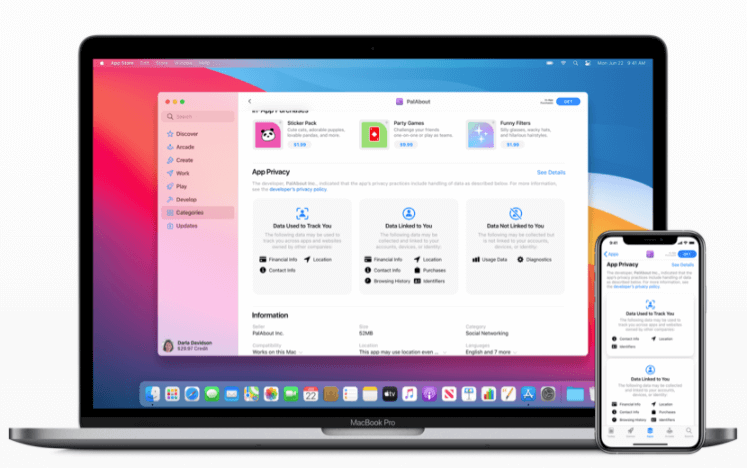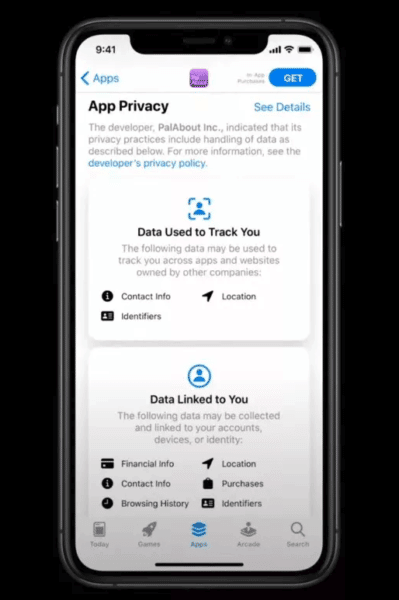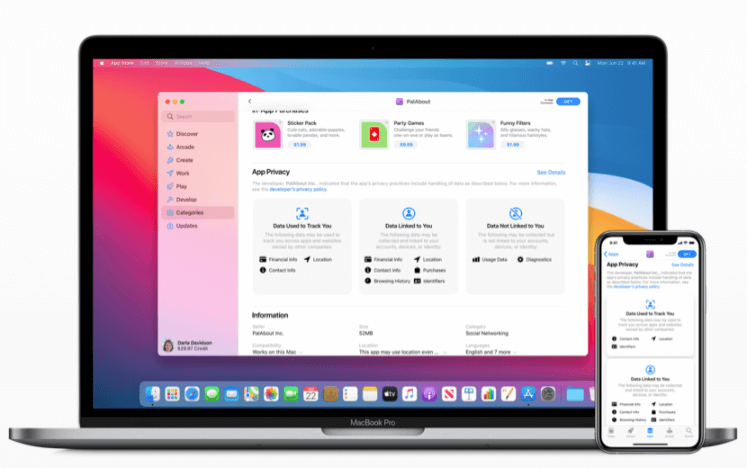Whether marketers like it or not, Apple (and others) are forcing greater transparency on them. Although Apple delayed its “permission to track,” opt-in rules until next year, its “privacy nutrition labels” for app developers go into effect next week on Dec. 8.
Information self-reported. First announced at Apple’s WWDC developer event this summer, these data-collection disclosures ask developers to self-report the categories of information collected by their apps. Developers will need to provide the required disclosures in App Store Connect. It will be mandatory for app updates and new app submissions.
Data collection “nutrition labels” go into effect next week

Publishers will also need to report the data captured and transmitted to third party partners, which include “analytics tools, advertising networks, third-party SDKs, or other external vendors whose code you’ve added to your app.”
Few publishers will avoid this. Apple has identified a broad range of data categories that require disclosure in the App Store:
- Contact/identity information
- Health and fitness information
- Location data
- Financial information (e.g., payments, credit score, etc.)
- Any “sensitive info” (demographic data, opinions, sexual orientation, biometric data, etc.)
- Data tied to collection of information on a user’s contacts
- User-generated content (email, texts, photos, videos, etc.)
- Search or browsing history
- User or device IDs
- Purchase-history data (e.g., e-commerce/retail apps)
- Usage/analytics data (e.g., launches, clicks, views, etc.)
- Diagnostic data (e.g., crash information)
Apple also identifies a limited number of circumstances where data collection disclosures are optional. However, there are four criteria that all must be met to avoid the disclosures.
Mock up of required privacy disclosures

The vast majority of publishers will need to provide these disclosures and very few will escape them. The question is whether and how they might impact consumer behavior or app adoption.
Why we care. Privacy rules tied to Europe’s GDPR and California’s CCPA have produced few actual changes in consumer behavior because they substantially place the burden on users to understand and engage with the opt-in/opt-out tools. With Apple’s new labeling, many people may similarly gloss over or blow by them and download apps in much the same way people don’t read End-user License Agreements and click “accept.”
Apple’s moves should all be seen in the larger context of the demise of third party cookies, intelligent tracking prevention and advertising ID/IDFA “deprecation.” Tectonic change is coming to audience tracking, retargeting and attribution. Having said that, consumers may not be scared away by these data-collection disclosures and their impact on marketers may be marginal. Opting-in to tracking, coming next year, will potentially be a different story.
.
The post Apple’s data-collection ‘nutrition labels’ for apps will begin appearing next week appeared first on Search Engine Land.
Source: IAB

